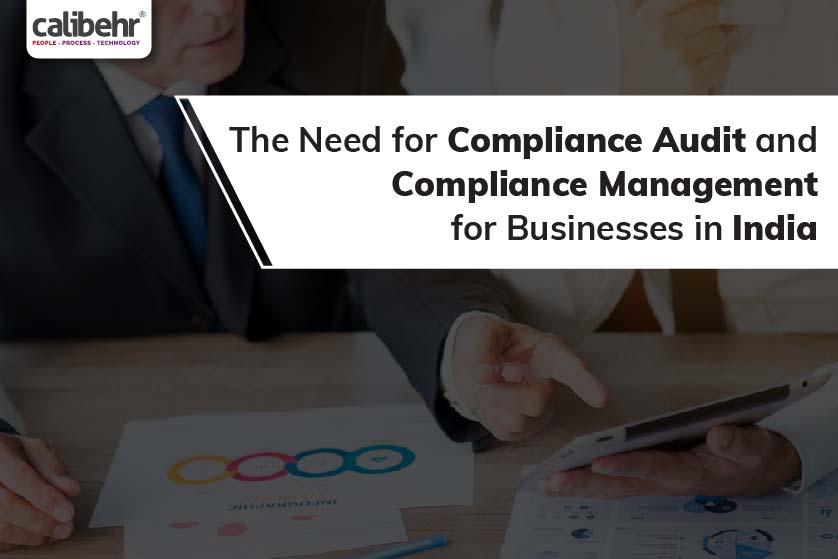If you want to drive a car in India, you need to follow the rules. Driving without a license, breaking traffic rules or keeping expired insurance papers can attract hefty penalties. You already know that, right? In the business world too, there are rules. Compliance services providing audit and management support help you to prevent penalties for non-compliance.
Adherence to regulatory requirements is crucial for hassle-free operations and consistent growth too. This is particularly true in India, where the regulatory framework encompasses a broad spectrum of laws - from labour and tax regulations to environmental and safety standards.
In this blog, find out in-depth about compliance audit and management for businesses in India.
What is Compliance Audit?
A compliance audit is a comprehensive review of an organization's adherence to regulatory guidelines. So, who sets these guidelines? Majority of them is set by the government – both at the state and national level in India depending on your industry.
The audit assesses whether a company is following external laws and internal guidelines, ensuring that its operations conform to legal standards. In India, compliance audits are essential due to the country's complex regulatory environment, which includes numerous statutes, rules, and guidelines governing various aspects of business operations.
Importance of Compliance Audits
Non-compliance leads to penalties. But there’s more. Find out what they are here:
1. Legal Obligations
Compliance audits ensure that businesses adhere to all relevant laws and regulations, avoiding legal penalties, fines, and sanctions. In India, non-compliance can result in severe consequences, including financial losses and damage to a company's reputation.
2. Risk Management
By identifying potential areas of non-compliance, audits help businesses mitigate risks. This proactive approach enables companies to address issues before they escalate into significant problems.
3. Better Efficiency
Regular compliance audits can streamline business processes by identifying inefficiencies and areas for improvement. This leads to better resource management and enhanced operational efficiency.
4. Stakeholder Confidence
Demonstrating compliance through regular audits builds trust with stakeholders, including investors, customers, and employees. It assures them that the business is well-managed and operates within legal boundaries.
5. Avoidance of Penalties
Compliance audits help businesses avoid penalties associated with non-compliance. In India, regulatory bodies impose hefty fines on companies that fail to adhere to legal requirements. You would surely want to avoid that. There are compliance service providers like Calibehr who can simplify the process and help your business save cost.
Compliance Management: The Right Strategic Move
Compliance management can be understood as process of identifying, learning and adhering to relevant regulations and standards. It involves creating policies and procedures to ensure compliance process is followed in the company and monitoring their effectiveness. Compliance management is crucial for businesses in India due to the dynamic and intricate nature of the regulatory landscape.
Compliance Management: Key Components
1. Policy Development
Establishing clear, comprehensive policies that outline compliance requirements and procedures is fundamental to compliance management. These policies should be regularly reviewed and updated to reflect changes in laws and regulations.
2. Training and Education
Employees should be well-informed about compliance policies and procedures. Regular training sessions help ensure that employees understand their responsibilities and the importance of adhering to compliance requirements.
3. Monitoring and Reporting
Continuous monitoring of compliance activities and regular reporting are essential for identifying and addressing non-compliance issues. This involves tracking regulatory changes and assessing their impact on business operations.
4. Risk Assessment
Conducting regular risk assessments helps businesses identify areas of potential non-compliance and develop strategies to mitigate these risks. This proactive approach is critical for maintaining compliance in a rapidly changing regulatory environment.
5. Technology Integration
Leveraging technology to streamline compliance management processes is becoming increasingly important. Compliance management software can automate monitoring and reporting tasks, making it easier to track regulatory changes and ensure adherence.
Compliance Management: How it Benefits Your Business?
Enhanced Reputation
Reputation is valuable today, and it will be so in the future. Businesses that demonstrate a strong commitment to compliance are viewed more favourably by customers, investors, and other stakeholders. This enhances the company's reputation and can lead to increased business opportunities.
Operational Efficiency
Effective compliance management can lead to more efficient business operations. By ensuring that all processes align with regulatory requirements, companies can avoid disruptions and maintain smooth operations.
Cost Savings
Proactive compliance management helps businesses avoid the costs associated with non-compliance, including fines, legal fees, and reputational damage. It also reduces the likelihood of operational disruptions caused by regulatory violations.
Regulatory Readiness
With a robust compliance management system in place, businesses are better prepared to respond to regulatory changes. This agility is crucial in a dynamic regulatory environment like India’s.
Increased Transparency
Compliance management promotes transparency within the organization. By clearly outlining compliance requirements and procedures, businesses can ensure that all employees understand their roles and responsibilities.
Challenges in Compliance Management
The sheer volume and complexity of regulations in India make compliance management a challenging task. Businesses must stay updated on regulatory changes and ensure that their policies and procedures reflect these changes.
Small and medium-sized enterprises (SMEs) often face resource constraints that hinder their ability to implement comprehensive compliance management systems. This can increase the risk of non-compliance and associated penalties.
Many businesses, particularly smaller ones, may lack awareness of all the regulations that apply to them. This can lead to unintentional non-compliance and associated risks.
Regulatory enforcement can vary across different regions and industries, creating uncertainty for businesses. This variability can complicate compliance efforts and increase the risk of non-compliance.
In the context of India’s intricate regulatory landscape, compliance audits and effective compliance management are indispensable for businesses. They not only ensure adherence to legal requirements but also enhance operational efficiency, mitigate risks, and build stakeholder confidence.
By investing in robust compliance solutions, businesses can navigate the complexities of the regulatory environment and position themselves for sustained growth and success. As regulations continue to evolve, a proactive approach to compliance will remain a critical component of business strategy in India.
Calibehr is a leading compliance service provider with more than 15 years of experience. Stay compliant with the help of experts at Calibehr. To know more, contact us today.








